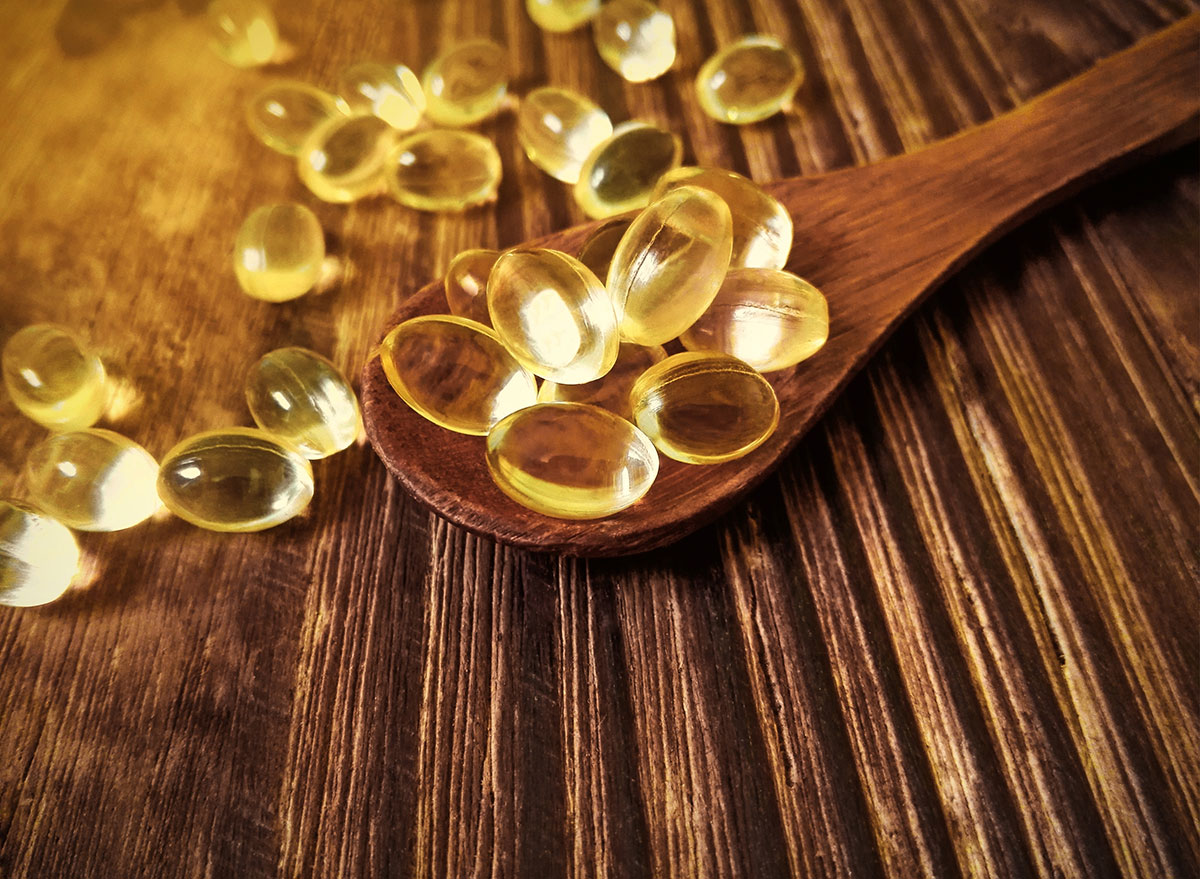What Happens to Your Body When You Take Too Much Vitamin D

Right now, vitamin D is hot as many doctors, registered dietitians, and other health experts are saying it could lessen the severity of COVID-19 symptoms.
Why? The vitamin is known to help support the immune system by decreasing inflammation in the body caused by the virus. However, Ali Webster, PhD, RD, Director of Research and Nutrition Communications, International Food Information Council, points out that vitamin D may not be the end all be all. (Related: The One Vitamin Doctors Are Urging Everyone To Take Right Now)
"Recent reviews of literature on the topic say that sufficient evidence to support vitamin D supplementation for the prevention or treatment of COVID-19 is still lacking," she says.
Still, taking a vitamin D supplement can't hurt you, that is, unless you overdose. Adult men and women are encouraged to consume 15 micrograms (mcg) or 600 international units (IU) of this vitamin each day, Webster says. For those over 70 years of age, the recommended dietary allowance is 20 mcg or 800 IU.
In some cases, health care providers will prescribe higher doses of the supplement to patients who are deficient or low in this vitamin. However, taking high doses when your levels are fine not only isn't necessary, but it could also be dangerous.
"Before starting a supplementation regimen, it's important to consult with a health care professional and make sure that your vitamin D status is continually monitored to assess any changes that may need to be made after you begin taking the vitamin," she adds.
Below, you'll see five potential side effects of taking too much vitamin D.
You could become nauseous

Since vitamin D is a fat-soluble vitamin, which just means it's better absorbed and transported in your body if it's consumed with fat. This, in part, makes it possible to consume in toxic amounts. Webster explains that this vitamin increases the uptake of calcium in the bloodstream which can cause a variety of issues. One such issue is nausea or, even vomiting.
If you're starting to feel nauseous while taking supplements, this could be an indication that you're taking too much of the fat-soluble vitamin.
Deydration could occur

Webster also says you could also be at risk of experiencing dehydration when taking too much vitamin D. As Sakiko Minagawa, MS, RD, LD told Eat This, Not That! in 7 Side Effects of Not Drinking Enough Water, signs that indicate you aren't drinking enough water include a rise in body temperature, drop in blood pressure, muscle cramping, and constipation. If any of these symptoms are prevalent and you're also taking this vitamin, consider taking a few days off and then resume by halving the dose.
You may start to feel weak

Vomiting and dehydration can leave you feeling weak, but taking too much vitamin D can also lead to unexplained exhaustion. You may even experience a loss of appetite, which could also make you feel fatigued.
You could develop kidney stones

Another risk factor in taking too much vitamin D is the development of kidney stones. Why? As Webster said, vitamin D increases the uptake of calcium from the gastrointestinal tract, which can then lead to too much of the mineral in the bloodstream. Having too much calcium in your blood can then cause kidney stones to form.
Speaking of calcium, be sure to check out The 20 Best Calcium-Rich Foods That Aren't Dairy.
In severe cases, you could experience heart abnormalities

In the worst-case scenario, meaning the most severe instances of vitamin D toxicity, Webster says you could experience heart abnormalities. However, you would have to be taking well over the recommended amount—specifically through supplementation—to ever feel this dangerous side effect.
"It's important to note that excessive intakes of vitamin D are primarily the result of misusing dietary supplements," she says. "It's not thought to be possible to get too much vitamin D from sun exposure, and since vitamin D is in relatively few foods, consuming toxic amounts of it would be very unlikely."
To learn more about potential side effects associated with several common vitamins and minerals, be sure to sign up for our newsletter.








